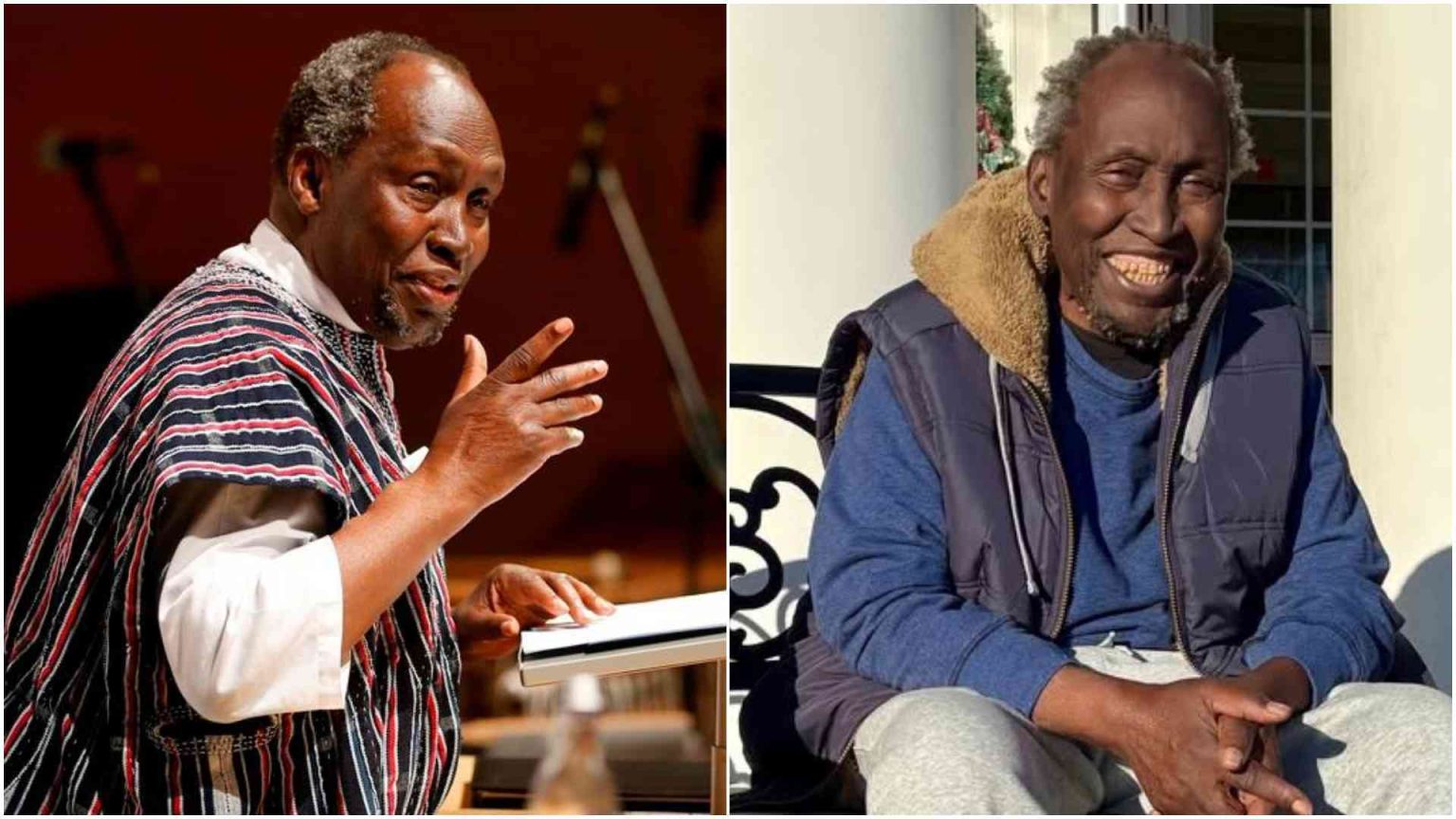The global literary community is in mourning following the passing of iconic Kenyan writer Ngũgĩ wa Thiong’o, who died yesterday at the age of 87 after a prolonged illness.
Revered as a pioneering voice in African literature and a fearless champion of decolonisation through language, Ngũgĩ’s death marks the end of an extraordinary chapter in world letters.
His son, author and scholar Mũkoma wa Ngũgĩ, delivered a raw and emotional tribute on X (formerly Twitter), honouring the man whose influence shaped every facet of his life.
“It tears my heart to say that my father, Ngũgĩ wa Thiong’o passed away earlier today. I am me because of him in so many ways, as his child, scholar and writer. I love him, I am not sure what tomorrow will bring without him here. I think that is all I have to say for now.”
The renowned author was also celebrated by his daughter in a heartfelt post on social media.
Fellow Kenyan literary figure and author of The Dragonfly Sea, Yvonne Adhiambo Owuor, honoured Ngũgĩ’s towering legacy with a poetic tribute on social media:
“A Kenyan mountain that spoke in fire
has turned its face to ceaseless skies.
This he conjured for us:
words as talisman,
sentences as horizon.
Now he
exists, stage left…
but the ground of our re-breathing
shall shelter, ever and again,
this most cherished of names.
Jowi! Jowi!”
In a follow-up post, she reflected on his monumental contributions to literature and liberation, noting:
“He left nations and a world with a lexicon of liberation. And gathered scattered bones of memory, weaving tongues back to our soil. He made ghoulish empire tremble in translation. Ah death! You ghastly wound. Jowi!”
Abdullahi Bulle, owner of Nuria Bookstore and a passionate promoter of Kenyan literature, changed the store’s social media username to “Thank You Prof Ngũgĩ” and paid homage to the author’s enduring impact:
“He lived 87 amazing years. I remember him for doing the unimaginable in preserving the Kikuyu culture, Africans and Blacks through literature. When the colonisers came, Ngũgĩ instantly knew what that meant and decolonised his mind long time ago. He dropped his English name and I urge new and existing writers to do the same.”
Makena Onjerika, winner of the 2018 Caine Prize, simply but powerfully stated:
“A mighty tree has fallen in the forest. May he be welcomed in ancestral plains.”
A mighty tree has fallen in the forest. May he be welcomed in ancestral plains.
— Makena Onjerika (@Onjerika) May 28, 2025
Sandra Nekh, author of Eastern Butterfly, remembered Ngũgĩ’s unwavering commitment to his roots when he delivered his 2020 Catalonia International Prize acceptance speech in Kikuyu.
“For Ngũgĩ to stand in a room where 99 percent of them don’t understand Kikuyu was gutsy. Sometimes I think about how much I know about my own language and I have decided to translate my books to my native language.”
She added:
“I like how boundless he was and the world-building in his books. He had a way of transcending beyond Kikuyu because he was a child, a professor of the world.”
Franz Owano, author of Boy Child, recalled secretly reading Devil on the Cross at the age of 12.
“When I grew older, I realised that he was not writing stories for fun. As an adult what drew me to him was how he brought the realities of his time and those who do that become immortal.”
Franz further noted Ngũgĩ’s deep understanding of the power embedded in language:
“One of the things that struck me about him is his understanding of the power of language to control and shape and construct the mind of a society. There is a correlation between language and power and he understood that from the beginning. One of the things that disappointed me is that he didn’t win a Nobel Prize for Literature. He is a legend in my book.”
Writer Muthoni Maina, author of Leaves of May, recounted her personal encounter with the literary giant during the Kwani? Festival in 2010 at the University of Nairobi.
“He was down to earth and personable. He asked us to learn and write in our indigenous languages. As a child, reading about him shaped my view of honouring our identities, language and stories.”
Ngũgĩ wa Thiong’o leaves behind a profound literary legacy, woven into the cultural and political fabric of not just Kenya, but the world. His voice may now be silent, but his words will continue to speak for generations to come.
